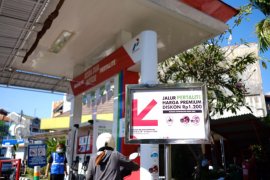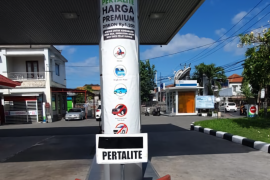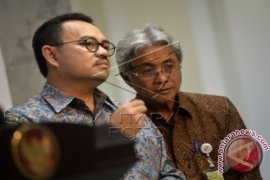Semarang (Antara Bali) - Raising the present gasoline price will be a more realistic policy than the government's plan to limit subsidized fuel oil consumption to reduce its subsidy burden, an economist here said.
"It will be very difficult to control the fuel oil market if there is a wide price disparity between two categories of oil (subsidized and non-subsidized gasoline). The condition could lead people to seek profit illegally," Nugroho SBM, an economist with Diponegoro University, said here on Monday.
The government plans to restrict the use of subsidized gasoline to public transport and motorcycles as of April 1, in an effort to cut oil subsidy which has been burdening the state budget.
Nugroho said if the price of subsidized "premium" gasoline was maintained at the current price of R4,500 per liter for public transport and motorcycles while private cars are only allowed to buy non-subsidized gasoline at a far higher price it would provide an opportunity for speculators to take a benefit illegally out of the price disparity.
Speculators might buy premium in a large quantity at gasoline pump stations and later retail it at Rp6,000 per liter to private car owners to get a profit. Nugroho said he believed many private car owners would buy it rather than buying non-subsidized gasoline at pump stations at a far higher price.
The economic lecturer said raising the gasoline price to Rp6,000 per liter would still be acceptable as the present price has remained at the level for years. He said motorists have also enjoyed economic growth in the past few years.
He believed a gasoline price hike would reduce fuel subsidy that the government had to provide by tens of trillion rupiahs.
"The budget cuts must be given back to the people in the form of health facilities or improvements of transportation infrastructures," he said.
Nugroho said he also believed a gasoline price hike of up to 33 percent would not spur inflation to surpass the growth rate projected at 6.5 percent this year.
"The rate of inflation will likely still be at a range of four percent if the government opts to raise the price so long as its price control team functions optimally," he said.
He said the policy would not disrupt economic growth and investment moreover after the country's debt rating had been raised to an investment grade.
The government and the House of Representatives have decided not to raise the price of gasoline in 2012 and so the government has to issue a government regulation in lieu of law (Perppu) to replace the policy because the 2012 budget has been made into law, he said.
He said the government need not worry his reputation would drop if he opts to raise the gasoline price because this is easier to be carried out than restricting consumption.(T007)





